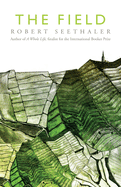
Robert Seethaler's The Field gives concrete expression to the oft-spoken wish that the dead could talk. In a collection of brief reminiscences, he summons the voices of the inhabitants of the titular burial ground to offer a panoramic vista of life in the fictional small town of Paulstadt, through the memories that linger for some of these former residents after their earthly days have ended.
The land where these dead are buried "wasn't any use for grazing cattle, but it was good enough for the dead." Each day, an elderly man goes there to sit on a bench under a birch tree, "convinced that he could hear the dead talking," but somehow unable to "piece the fragments together so that they made sense." The Field's vignettes represent his imaginative re-creation of those cacophonous voices.
Seethaler's (The Tobacconist; A Whole Life) characters are, for the most part, a querulous lot, reflecting with regret, and often bitterness, on the fleeting moments of their lives. Nabil al-Bakri, who came to the town as a teenager, recounts the bigotry he faced as an immigrant. Susan Tessler recalls her friendship with Henriette, a fellow cancer patient dying in the local sanatorium: "For a long time I tried to tell myself that we don't die, we just leave this world. Death is just a word. But that's not true."
When it comes to life's end, "death holds the truth, but you're not allowed to tell it," cautions Annelie Lorbeer, the town's oldest resident, who lived to age 105. Until that changes, stimulating works like Seethaler's will have to fill the void. --Harvey Freedenberg, freelance reviewer

